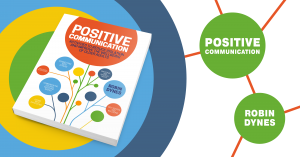 Robin Dynes, author of ‘Positive Communication: Activities to reduce isolation and improve the wellbeing of older adults’ explains the reasoning behind his book.
Robin Dynes, author of ‘Positive Communication: Activities to reduce isolation and improve the wellbeing of older adults’ explains the reasoning behind his book.
We belong to an ageing society. The National Institute on Ageing informs us that in 2010, an estimated 524 million people were aged 65 or older – 8% of the world’s population. By 2050, this is expected to increase to 16% – 1.5 billion. A massive challenge for all health, social and care service staff to meet their needs.
As people grow older confidence and self-esteem may be eroded by hearing or sight loss. They are often affected by illness or physical inability to get about and consequently become isolated and lonely. Changes to personal relationships destroy habitual communication patterns and links. Social expectations, shaped by peers and the events and experiences of their time, are out of tune with modern attitudes and the support services are provided by younger people with a different outlook on life. A youth orientated society often makes them feel unimportant, inadequate, isolated and obsolete. Feelings with which I am very familiar, having worked in health, social and care services for over 35 years and as I, and many of my friends, grow older.
It is a fact that older adults who maintain their communication skills and continue to interact socially maintain a more positive view about themselves and are more adept at facing these challenges. They are more able to cope with changes, communicate their feelings, express opinions and wishes and continue to contribute to the society in which they live. They are more likely to retain good physical and emotional wellbeing and maintain a sense of control and achievement in the modern world. Enabling this to happen is essential work in an ageing population.
It is vital that staff within residential homes, drop-in or day centres, hospices, clubs for the elderly, hospitals, nursing homes or support situations, at home with carers help them retain their abilities and wellbeing. We, as activity organisers, group leaders and care workers, are at the forefront of this task. The aim of the book is to provide activities that are easy to use and enables group leaders to achieve this goal.
There are activities to help older adults:
- Interact and connect with others
- Retain a positive view of themselves
- Communicate their feelings , needs, opinions and wishes for the future
- Talk about and cope with difficult situations
- Maintain a sense of self control and achievement
- Meet emotional and spiritual needs
- Maintain relationships with others
- Improve their self-esteem and well-being
I hope this book will provide you with an essential tool to aid you to make an impact on the lives, health and wellbeing of the people you support. It is a challenging, enjoyable and rewarding task.
Click here to see an example of some activities included in the book.
Robin Dynes is a counsellor and freelance writer who has worked as a Social Inclusion Officer for Skills and Learning. Robin developed an outreach curriculum to meet the needs of people with disabilities, older people and other vulnerable people.
If you would like to read more articles like Robin’s and hear the latest news and offers on our books, why not join our mailing list? We can send information by email or post as you prefer. You can unsubscribe at any time.